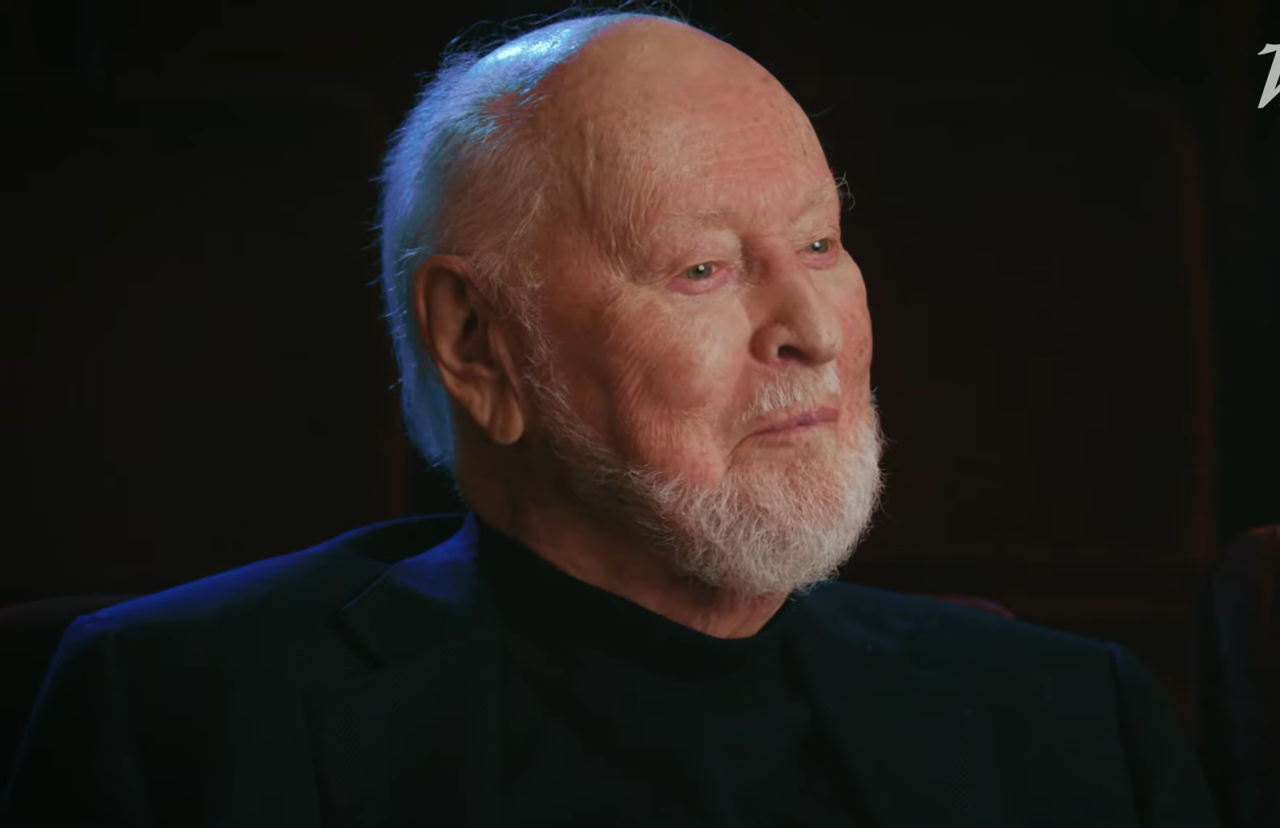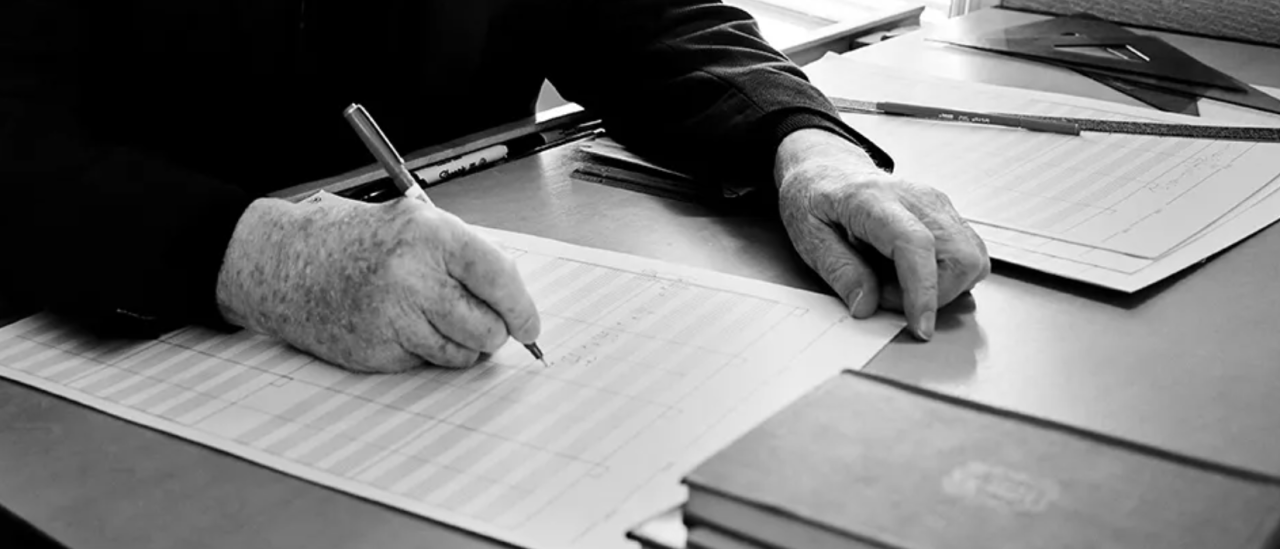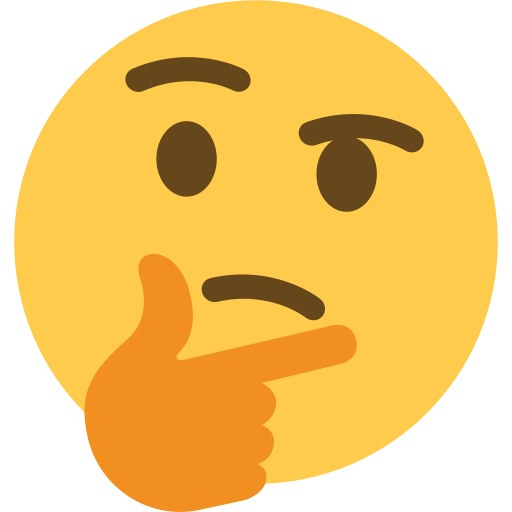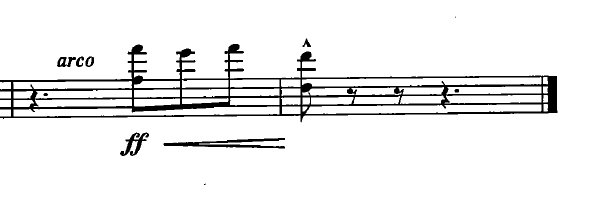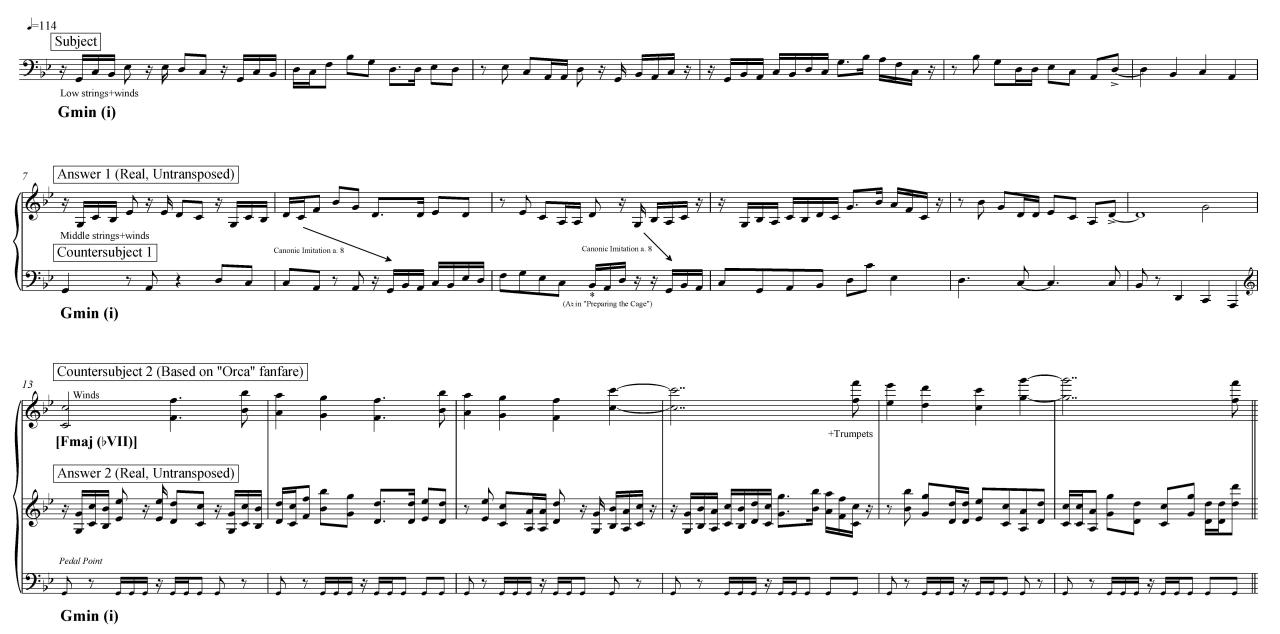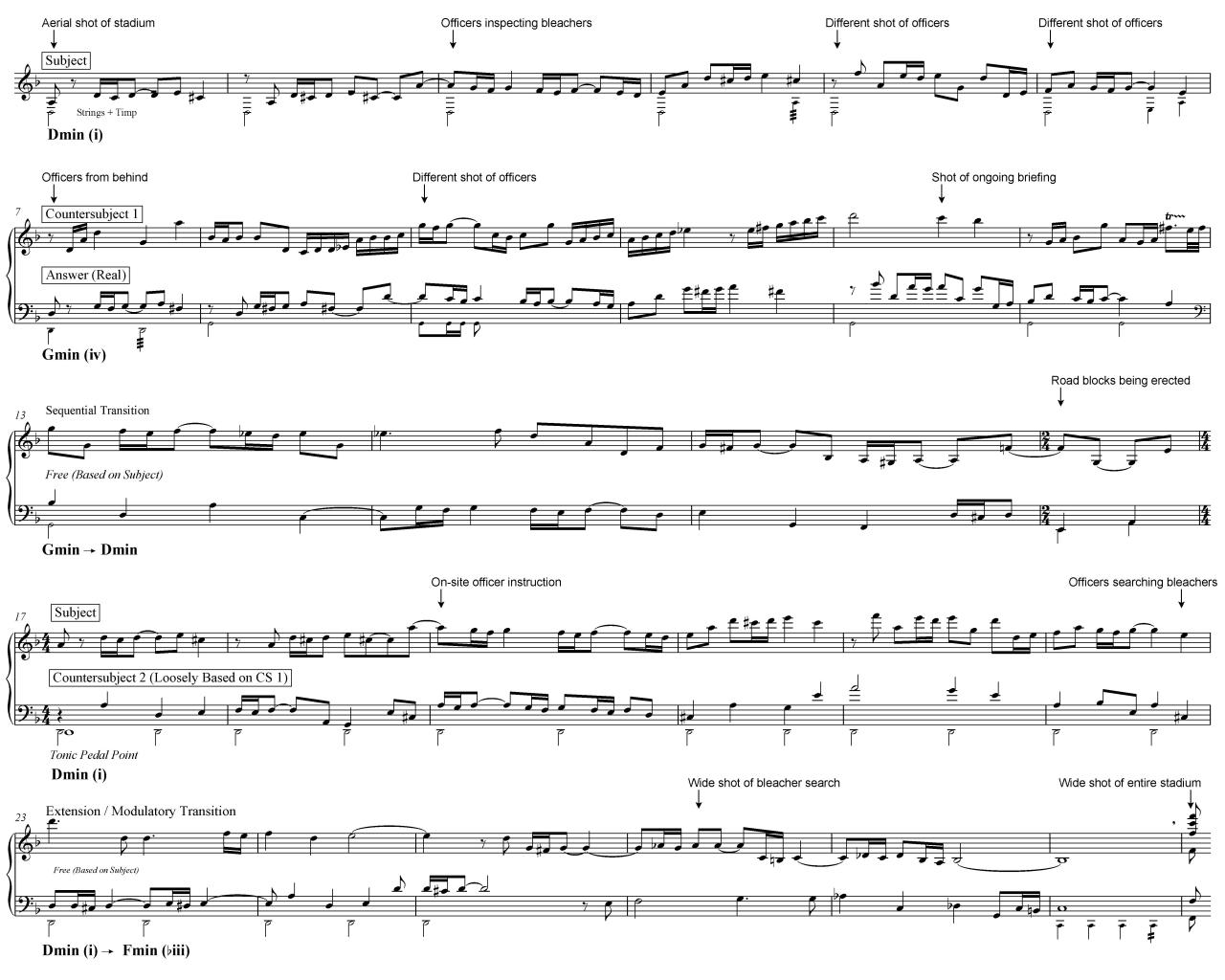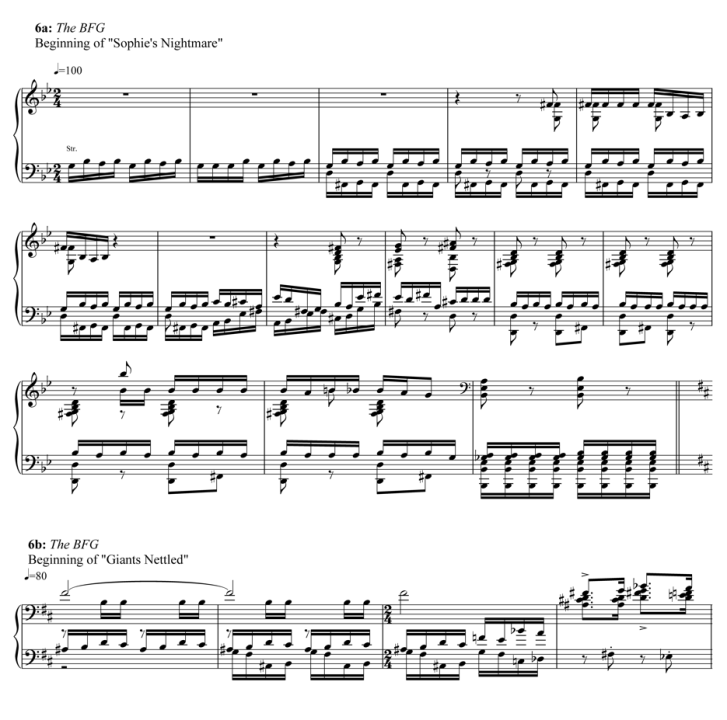-
Posts
733 -
Joined
-
Last visited
-
Days Won
18
Everything posted by Falstaft
-
It's definitely a challenge, given how frustratingly incomplete and jumbled the score's presentation is. I'm not approaching any of the 9 as if they need any special defending. But in the case of TROS, I do feel I can offer a small corrective to what I see as a kind of mistreatment of Williams's swan song, both by the filmmakers and (more vexingly to me) the general public. I doubt there will be an audiobook -- it'd be unprecedented if there were for this particular book series (the Oxford Music/Media line). Though who knows... with AI emulation these days, maybe someone could enter all the text in and have it read back to you in the voice of Ian McDiarmid! There certainly will be an online companion though that has lots of short clips and such on it. I'm sure I'll cite Kalinak's chapter somewhere, though it's not especially central to what I'm doing. I don't know Evensen's SW/Wagner work, though, trust me, that angle is something I've got plenty to say about. Particularly since I think a lot of the existing scholarly treatment of the Williams/Wagner connection is at best superficial. But the man is a black hole: get too close and he completely dominates whatever subject you thought you were writing about before. So I'm trying to take care to keep the focus on JW rather than him.
-
It's just amazing, isn't it? On one hand, I think "The Meld" as we all know from the film it is a masterpiece and one of the most skillful and effective musical climaxes in Goldsmith's filmography. (Which may be close to saying it's one of the most skillful & effective musical climaxes/payoffs in film, period!) On the other hand, the rejected cue is simply magnificent, and clearly works wonders with the scene.
-
Wow, thanks everyone! Obviously, the most important question to address is how I got those italics. Simple! https://lingojam.com/FacebookFonts As for the timeframe: I have over a year to hand in the finished manuscript, but my goal is to have it completed well before that. It's a big book, and publishing is a very slow process. But everything so far is proceeding as I have forseen... It's not a guide to the scores really, but something more holistic, with each chapter looking at cues from all three trilogies from some angle: musical referentiality, thematic transformation, concert arrangements, and so on. There will be a ton of music examples (all my own annotated transcriptions as usu.), hopefully presented in an accessible way that draws in people who can't read sheet music. I know notation and music-theory jargon can be intimidating, and I'm hyper-aware of the potential gatekeeping effect it could on an already niche readership. But at the same time, I think we can all agree this music warrants deep and serious analysis! It's a balancing act for sure... Alas, I don't have special access to recordings, and can't speak to official expanded album releases, as amazing as they would be! Incidentally: I don't see it trumpeted nearly enough on these boards but Chloé Huvet came out with a book on SW music (mainly the OT and PT) a couple years ago that is absolutely brilliant and similarly synthetic in approach. The book is in French, which limits the audience, but it's worth getting your hands on if only for the fantastic music examples and charts. The amount of insight in her prose is incredible too, and it's been a major source of inspriation to me.
-
This is true for every* single JW score -- his sketches are for all intents and purposes complete. Which is not to minimize the importance of the orchestrator in any way, just to say that their role is, in JW's words and their own, "stenographic." It is indeed unusual for a film composer to do this, but JW's not your regular film composer! *Caveat: There are instances of timesaver cues from scores like HP:COS, Indy 5, and some bits of the Sequels where the orchestrator's task is also one of adaptation of pre-existing JW music. We on this JWfan board like to worry disproportionately about these!
-
This is a hard one! My first thought was something from the Essay for Strings -- the rising octatonic sixteenth run and extremely chromatic, disjunct melody that follows is something that happens a lot in that piece, but never in exactly this way. Then I remembered that a certain cue starts with rising octatonic lines in several instrumental groups. Very tricky for not giving us the primary melodic line, @Manakin Skywalker!
-
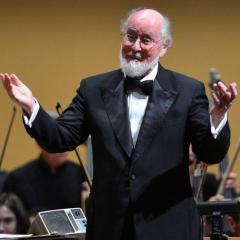
John Williams on Variety Cover (article & video)
Falstaft replied to JNHFan2000's topic in JOHN WILLIAMS
-

John Williams on Variety Cover (article & video)
Falstaft replied to JNHFan2000's topic in JOHN WILLIAMS
-
A little past his birthday, but you all may enjoy this little segment with KCRW where we celebrated Williams's lesser-known scores. (Well, lesser-known to the broad public, I'm sure none of this will be news to the majority of JWfans!) https://www.kcrw.com/news/shows/press-play-with-madeleine-brand/media-scotus-same-sex-weddings-music/john-williams-film-scores
-
You got it!
-
-
-
Here's to you, @Ricard! The importance of this site and this forum, to me and so many others, is hard to overstate.
-
It's really great, isn't it? I know enough about Williams's style of interviewing that a) his responses are often a little rehearsed and massaged and b) this one really does capture his incredible autobiographical memory and poetic sensibility towards his life and art. Also, I didn't know he remembered that the SW opening title initially began with that tiny run up! Who else remembers first listening to the "secret" track on the ANH Special Edition in 97 and just being blown away?!
-
Shark Cage is brilliant. The quartal organization of the subject is really nicely reflected in the Orca Theme. I had the Kent Kennan counterpoint book as an undergrad too, and it's excellent. But really, the best teacher is Bach. Just sit down with the Well Tempered Clavier some time. Start by flagrantly copying him. You'll pick up on the technique through imitation. Haha, my cocktail napkins are definitely not worth preserving! The whole talk isn't really fit for sharing in the state it's in. But this thread has given me a spur to revisit it and turn it into a proper article. Once I get this other big thing out of the way, it'll probably be my next JW project. Oh, and here's a "Guess That Score" challenge. Can anyone place where this canonic passage from Williams comes from, and why it may be an especially appropriate use of the technique?:
-
I've been summoned! Exact definitions differ between theorists of course, but there is a pretty stable consensus concerning what's genuinely fugal, what's canonical or imitative, and what's just polyphonically busy. For a fugue, it's all about that incremental feeling. One voice introduces the fugue's main idea ("subject") in full, then another comes in repeating it while the first offers a countermelody ("answer"), and so on. Traditionally, these need to be at quite specific tonal levels -- the second either in ("real") or on ("tonal") the key of the dominant. And back and forth it goes until all seperate contrapuntal strands are introduced, usually 3-4 voices in total. I'm simplifying a lot, though it's worth pointing out that Williams almost never writes fugues by completely by the "book." The key thing is that feeling of accretion, of rising intricacy, of one melodic subject chasing another, As breathtaking as it is, I'm afraid there's nothing fugal in the Asteroid Field. March of the Resistance's middle section includes definite but quite unconventional fugal exposition that modulates up by fifth three times, from F to D, and doesn't have a consistent countersubject. A few years ago I gave a talk on all things neo-Baroque in Williams, which included transcribing all of his fugues, fugatos, and canonic passages. It's a marvelous thing to behold. In any case, my vote is for Black Sunday.
-
Hmm, it sounds surprisingly one-to-one with JE's Reunion to me -- is there a bit in particular you're hearing that harmonically diverges from what JW wrote in that cue? Maybe my ears are disintegrating! Whoa! Never seen that before.
-
Found this on YouTube -- quite a good arrangement:
-
@ConorPower, don't tempt me, I've got enough on my plate right now!
-
Got it, @Pat_S!
-
Hows this for a hint? It's from an Indiana Jones score
-
What a treat. Only strengthens my opinion that TROS is the best musical entry in the sequel Trilogy. Not just the thematic variants (though those are great too). It's all about the transitions!: *The way the Force theme in Dm is flanked, first by that beautiful dissonant texture that seems to coalesce on a E♭-maj pandiatonic cluster, then a post half-cadential sustain on the ♭II(ma7) chord (also E♭). Both bookending sections have a nice rising line [G3-C4-D4-G4 before, G3-A3-D4-Eb4 after]. Kind of Mountain Motif from CE3K-esque. *The little idea starting at 0:28 in B-major. That quick progression, B to Bdim7 back to B, is a crucial harmonic ingredient in the Friendship Theme that comes a few minutes later. *The interstitial material after Rey's theme gives us, for the first time I think in a long while in Star Wars, that wonderful Waltonian harmonic sensibility. Chords are Bma7/A♯ <=> D♭/G♭ => E♭ma7/B♭ => D♭ma7/B♭ => C/G. There are a few other patches where Williams re-channels Walton in TROS and it's just so satisfying to hear that sound return.
-
Not a reference or transformation of any other theme Indy as far as I can tell! Though fans of Ralph Vaughan Williams should enjoy a pang of recognition:
-
Earlier!
-
Cool thread! I think Banning Back Home is a good choice. I think it was mentioned recently in another thread, but the inspiration was Dave Grusin "Mountain Dance," maybe with a little "New Hampshire Hornpipe" thrown in there too. "Padme's Ruminations" too, and the Tan Dun-esque percussion from "Chase Through Coruscant" probably deserves a shout out too. I hear what you're saying @Edmilson with Lesson One, though the string line is not so far from this bit from The Patriot: There's ActionString(TM) stuff of his elsewhere in post-2000s scores. But where a RCP-type composer might just lay it down as a static ostinato, it almost immediately becomes a complex polyphonic texture in Williams's hands. Just look what happens to his little Zimmer-esque ostinati after one or two measures in BFG for instance: It's hard for me to think of a cue from Williams in the past 35 years or so that genuinely feels "UnWilliams." Maybe some of the gyuto monk chanting in Seven Years in Tibet? Some of that thumping suspense music from Munich?






